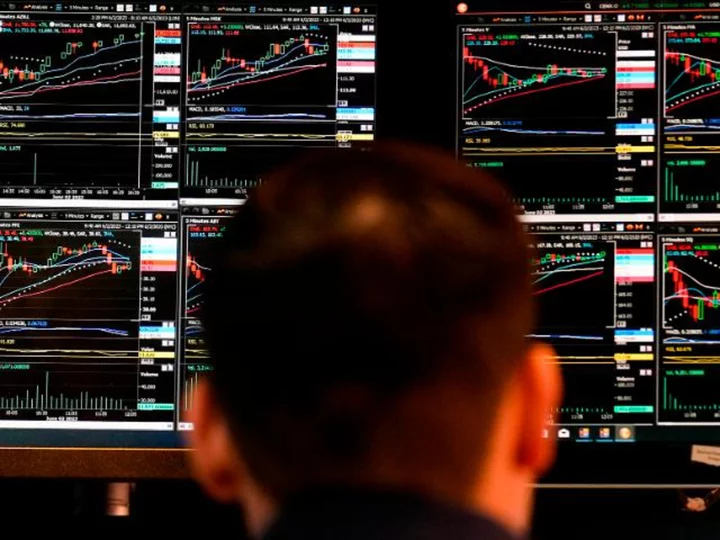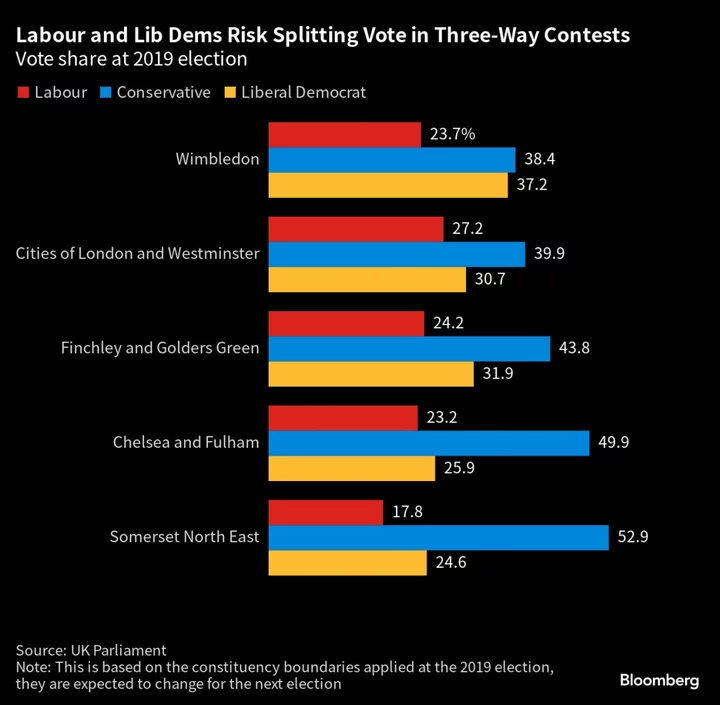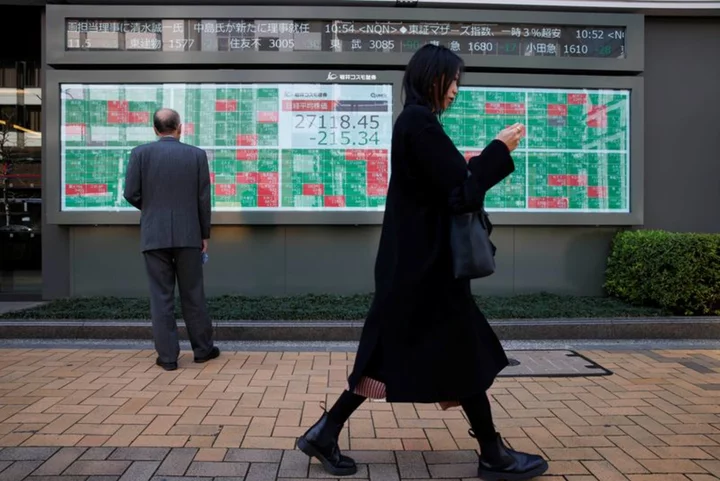"Sell in May and go away" — shorthand for the idea that US stocks rise more between November and April than over the summer — is one of the most oft-repeated adages on Wall Street.
But Main Street isn't listening.
New data from TD Ameritrade shows that retail investors shrugged off US debt ceiling uncertainty and recessionary fears last month as they increased their exposure to markets.
What's happening: May was a mixed month for US stocks. The debt ceiling debate and the possibility of a US default unnerved investors and ruffled markets. Economic data beat expectations and inflation remained sticky, boosting fears that the Federal Reserve would raise interest rates once again. On top of that, regional banking worries were revived when First Republic Bank failed at the beginning of the month.
The Nasdaq Composite managed to gain 5.8% on the back of a boom in AI stocks and strong tech earnings, but the S&P 500 was essentially flat and the Dow ended May 3.5% lower.
Still, retail investors increased their exposure to stocks last month and were the most bullish they've been in a year, according to the TD Ameritrade Investor Movement Index for May. That index aggregates Main Street investor positions and activity to measure how they're positioned in the market.
On the final day of May, retail investors alone had a net flow into equities of $1.48 billion, the highest in about three months, according to VandaTrack Research, a financial data company
Main Street takes a risk: Retail investors likely saw economic turmoil as an opportunity to buy market dips, Alex Coffey, senior trading strategist at TD Ameritrade, told CNN. "They were opportunistic about scooping up shares of regional banks," he said.
Retail investors also piled out of AI and tech stocks as the sectors surged in May, opting instead to put their money into riskier bets. "The big takeaway to me was that while there was all this fear bubbling up, our clients saw this as an opportunity to rotate out of names that were doing really well and into names that had some bad news in May or that were struggling — companies like PayPal and Disney, and even Tesla," said Coffey
Retail investors are often seen as trend chasers, buying into stocks after they surge upward, but that's no longer the case, he said. Empowered by platforms that allow them to trade quickly and cheaply, new access to market information and still armed with half a trillion dollars in pandemic-era savings, retail investors are making moves on their own instead of following the so-called smart money of institutional investors.
"These investors are a lot more contrarian than people think," added Coffey.
But these trades are risky and while an institutional investor might lose their job for making a big mistake, a Main Street trader could lose their shirt.
Bad day for Binance
The world's largest crypto exchange is in trouble.
The US Securities and Exchange Commission filed a 136-page complaint against Binance and its CEO Changpeng Zhao on Monday where they accused the company of misleading its clients, mishandling billions of dollars and running an illegal exchange.
"Through 13 charges, we allege that Zhao and Binance entities engaged in an extensive web of deception, conflicts of interest, lack of disclosure, and calculated evasion of the law," said SEC Chair Gary Gensler.
A spokesperson for Binance said the company takes the SEC's allegations seriously, but it believes the agency's accusations are "unjustified."
"We respectfully disagree with the SEC's allegations that Binance operated as an unregistered securities exchange or illegally offered and sold securities," the company said in a statement. "Because of our size and global name recognition, Binance has found itself an easy target caught in the middle of a US regulatory tug-of-war."
But the SEC says that Binance was well aware of this rule breaking. The SEC complaint included a pretty damning remark from Binance's chief compliance officer, who told a colleague in 2018: "We are operating as a fking unlicensed securities exchange in the USA bro."
That doesn't sound good, bro.
Airlines ask: What economic slowdown?
Economic uncertainty abounds, but people are still flying high.
Global airlines could make about $10 billion in profit this year as they benefit from a post-pandemic travel boom, forecasts the International Air Transport Association (IATA).
IATA on Monday more than doubled its 2023 profit forecast for the global airline industry, reports my colleague Hanna Ziady.
Airlines are expected to make $9.8 billion in net profit in 2023, up from a December forecast of $4.7 billion.
Stronger profitability was supported by cargo revenues, China's reopening and lower jet fuel prices, IATA's director general Willie Walsh said in a statement.
The industry's main lobby group expects 4.35 billion people to travel by air this year, marking nearly a full return to pre-pandemic numbers. About 4.5 billion passengers flew in 2019.
But it isn't all smooth skies ahead. Profit margins remain "wafer thin," Walsh added. "Repairing damaged balance sheets and providing investors with sustainable returns on their capital will continue to be a challenge for many airlines," he added.
Walsh pointed out that airlines would net just $2.25 per passenger.









